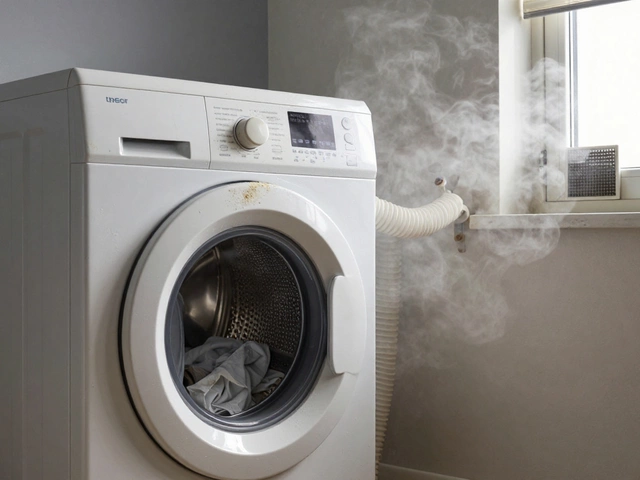If you run a café, a laundromat, or a small office kitchen, you know how a broken appliance can shut down the day. The good news is you don’t have to wait for a technician for every hiccup. This guide shares the most common problems you’ll face with business‑grade ovens, dishwashers, washing machines and heat pumps, plus easy steps you can take right now.
First thing to do is identify what’s actually wrong. An oven that won’t heat? Check the element with a multimeter – a quick continuity test tells you if the heating coil is dead. A dishwasher that runs but doesn’t dry? Look at the heating element and make sure the thermostat isn’t stuck open. For washing machines, a noisy spin cycle often points to worn bearings or a loose drum belt.
When it comes to heat pumps, listen for strange noises and feel if the air coming out is lukewarm. Low airflow usually means a clogged filter or a failing fan motor. Spotting these issues early can save you a costly service call.
Before you call a pro, try these safe, quick fixes:
If the problem persists after these steps, it’s time to call in a specialist. Knowing exactly what you’ve already tried makes the technician’s job easier and can lower the bill.
For high‑value equipment like commercial ovens or large heat pump units, regular maintenance contracts are worth the investment. A yearly service catches worn parts before they fail, extends lifespan and keeps energy bills down.
Remember, safety first. Always disconnect power before opening any appliance and never attempt gas‑related repairs unless you’re certified.
With these basics in hand, you’ll keep your business running smoothly, avoid unexpected downtime, and know when it’s truly time to let a professional take over.

In the business world, appliances aren't just about the gadgets in your kitchen; they're tools and strategies central to operations. From simplifying daily tasks to enhancing efficiency, appliances play pivotal roles in various business aspects. Understanding their function means knowing how technology, devices, and smart systems integrate into business to drive productivity. Delving into real-life examples, this article provides insights and tips on leveraging appliances effectively.

Figuring out whether to repair or replace a 10-year-old range can save money and hassle. This article explores cost considerations, common issues, and when to opt for repair versus replacement. Additionally, discover maintenance tips to extend your range’s life. Make informed decisions with a detailed look into repair pros and cons. Navigate the world of kitchen appliances with confidence.

Most tumble dryers last 8-13 years, but poor maintenance can cut that in half. Learn the signs your dryer is failing, when to repair vs replace, and how to make it last longer.

Ever opened your freezer to find squishy ice cream or thawed food when it should be rock solid? This article digs into the real reasons your freezer refuses to stay frozen, from simple mistakes to sneaky mechanical fails. Learn how to spot common culprits, fix minor issues yourself, and know when things are actually serious. Packed with practical tips and straightforward advice, you'll get the cold facts and solutions you need. No jargon, just help you can actually use.

Got an appliance that isn’t working right? The way you describe it can make or break your service experience. This article breaks down how to explain what’s wrong with your appliance, what details really matter, and how to avoid confusion. Learn which features, model numbers, and problem signs technicians care about. Save time and frustration on your next repair call.

Figuring out if your microwave is on its last legs can save you a lot of hassle. There are various signs that might indicate it's time for a fix or a replacement. Understanding these symptoms can help maintain your kitchen's efficiency. Here’s what you need to watch for: strange noises, inconsistent heating, and more. Catch these early, and you might avoid a total breakdown.